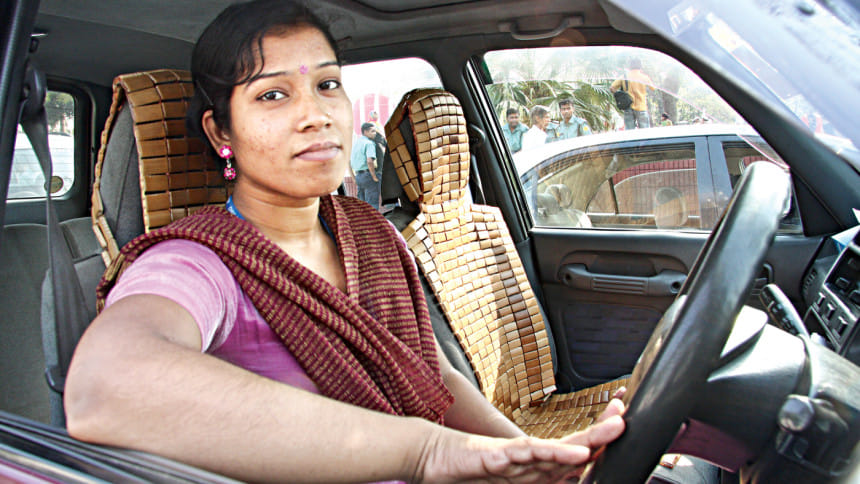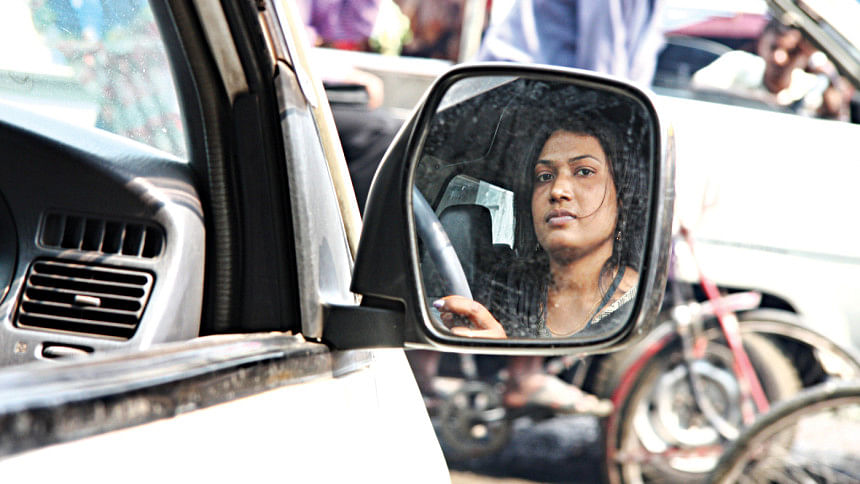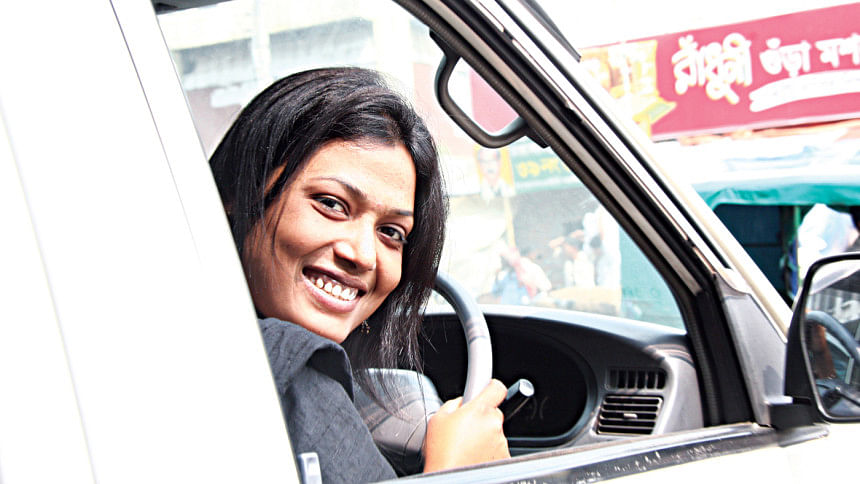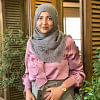Women behind the steering wheel in Dhaka

Dhaka, a metropolis that is always hustling and bustling with people and busy crowds. This densely populated city is constantly moving around the clock and as people move, so do vehicles. That is what defines our city as a concrete jungle with a sea of transport on the roads.
But have you ever stopped to ponder and notice something unusual in these busy roads? Well, you would not find this unusual unless you compare the streets of Dhaka with that of any other country.
I am not pointing towards the absurd amount of traffic congestion, dirty lanes, or mismanagement of traffic. Rather it is something a lot of other developing countries have achieved and yet, we lack behind — it is the number of female drivers.
How many female drivers would you notice if you stood even at the busiest junctions of Dhaka for five minutes? Maybe a couple in about hundreds of vehicles. But what is the reason behind this discrepancy? Is it due to a patriarchal society? Is it owing to driving predominantly being tagged as a task for men? There are reasons aplenty.
Societal stigma
Despite the fact we are progressing as a society and have come a long way as women, treading our path, overcoming every obstacle thrown at us, there still exists people who see women driving as something unpleasant, like a stigma. Often times, even if females are interested to drive, backlash comes from within their own homes. This is especially the case when women tend to ride bikes, or are eager to be a part of the ride-sharing industry.
Take Sweety Akhter for example, who was previously a rider at OBon, "I had to go through a lot of hassle to convince my family in order to allow me to take up the profession of a driver. It was a tiresome process from argument to agreement, but only after a month, I had to quit as my husband was not happy about it," she said.
She also added that she did not receive support from her community when she took up this job. "Even after taking and excelling the extensive training and finally getting the offer, it seemed like I was the only one proud about myself. I come from a small community and people here see women bikers as an outcast," she shared.

Safety concerns
The streets of Dhaka are not the safest to drive on and this is another reason for the lack of female drivers. However, particularly for women, road safety is not the only safety concern while driving. Sadly, more often than not, women are the subject of being followed, jeered upon, or catcalled while driving alone.
Speaking from her years of driving experience, Ayesha Shams shared, "There were times when my vehicle was deliberately hit on the road when I was taking slightly longer to pass or make a turn. But I am more afraid to drive on empty highways than busy roads as several times, I was followed, being forced to speed up and get myself out of that unfavourable situation."
But women have learnt to adjust with the most unusual circumstances and find a way out, owing to their perseverance. Salma Hakim, who is a performer said, "The nature of my job compels me to drive at night, for which I have had to withstand many harsh comments from various people. But I could not be any less bothered. I have the right to be independent and drive as long as I am not doing anything wrong."

Familial priorities
A woman has several roles to play simultaneously, and a lot of times, she has to make the decision of prioritising her family responsibilities over others. Rowshan Ara, a mother of two, underwent similar circumstances.
"Previously, I would regularly drive to work and I really enjoy driving on my own. But since the birth of my second child, work became too hectic to manage and I had to take a break from office," she remarked.
On the other hand, some women take up driving as a job to support their families. Sharmin Parvin, who is a driver at Uber said, "Although there were many incidences when a passenger cut my call only for hearing a female voice, I drive to earn bread and butter for my family, so I find these incidents to be humorous now," she laughed.
Another service provider, Rumpa Khatun who is a delivery person, shared, "When the pandemic hit, my husband lost his job and it was very difficult to make ends meet. That is when I took upon this job and although initially, my family showed restraint, they gave in when they saw it was generating income to run the household."
Shift in trajectory
Albeit women drivers still have to face an unnecessary horde of comments and go through additional hassle just to drive on the streets of Dhaka, this scenario is gradually changing.
The society progresses with the thoughts of its people.
Many women such as Leuza Akhter, a driver at Uber, have attested to being encouraged to drive by her passengers. "My passengers usually get surprised to be greeted by a female driver but most of them have shown great encouragement towards my profession and hope to see more such female drivers in the future," she said.
Tithy Zaman, who has been riding a bike for over a decade, also shared the shift in trajectory she witnessed, saying, "I still get comments and jeered upon when I go out for a ride. But the number has reduced drastically and I am beginning to see more civilised behaviour from our population."
There will always be people finding negativity even in the best of situations, but it is upon our discretion on what to focus on. Dhaka is progressing in various aspects, and one day, we dream of a city where female drivers is as common as male drivers.
Photo: LS Archive/Sazzad Ibne Sayed

 For all latest news, follow The Daily Star's Google News channel.
For all latest news, follow The Daily Star's Google News channel. 



Comments